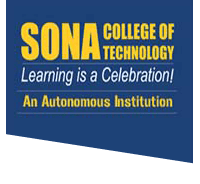Date/Time
Date(s) - 28/02/2024
3:00 pm - 5:00 pm
Categories
A Report on International Convergence Conclave – Fostering Collaboration between Healthcare Researchers and Healthcare Practitioners for Medical Engineering Research
Date: 28.02.2024
Time: 3:00 PM to 6:00 PM
Venue: GT Hall, Department of CSE, Sona College of Technology, Salem, India
The International Convergence Conclave, themed “Fostering Collaboration between Healthcare Researchers and Healthcare Practitioners for Medical Engineering Research,” held at Sona College of Technology, Salem, brought together esteemed experts, scholars, and practitioners from diverse fields to explore the intersection of healthcare, technology, and research. The event aimed to facilitate dialogue, knowledge exchange, and collaboration towards advancing medical engineering research for the betterment of global healthcare.
The event commenced with a soul-stirring invocation by the Sona Choir, setting a serene ambiance for the discussions that followed. Dr. B. Sathiyabhama, Head of the Department of Computer Science and Engineering at Sona College of Technology, delivered the welcome address, providing an overview of the program’s objectives and significance.
Dr. S.R.R. Senthilkumar, Principal of Sona College of Technology, delivered the opening remarks, emphasizing the importance of interdisciplinary collaboration in addressing contemporary healthcare challenges. The event featured a series of enlightening expert talks by distinguished professionals:
Dr. Bhuvaneswari, Chief Radialogist at Sudharsana Scans Salem, appreciated the team for organizing this international conclave and she recollected the memories of the previous project Breast Cancer analytics and congratulated the team for successful completion of the project.
Dr. Rubesh Sharma, Assistant Professor at Government Mohan Kumaramangalam Medical College, Salem, shared insights into the intersection of healthcare and technology.
Dr. D. Sasikumar, Ophthalmologist at Dr. Sasi EyeCare, Salem, shed light on the role of medical engineering in ophthalmology.
Dr. Tejas. J, Professor at Karpaga Vinayaga Institute of Medical Sciences and Research Centre, Chengalpattu, explored the applications of medical engineering in forensic medicine and toxicology.
Dr. Ramanan. R K, Director of the Centre for Research and Innovation in Healthtech, elucidated on the latest advancements in health technology research.
Prof. Seshathiri Dhanasekaran, Professor at UiT The Arctic University of Norway, provided international perspectives on medical engineering research, including insights into explainable AI models and their applications in healthcare.
Dr. B. Sathiyabhama delivered another insightful talk, highlighting the role of computer science in healthcare innovation.
Dr. Sheila John, Head of Teleophthalmology and E-Learning Department at Sankara Nethralaya, discussed the integration of telemedicine in ophthalmology.
Dr. Prabakar S, Head of the Department of Biomedical Engineering at Sona College of Technology, shared perspectives on the future directions of medical engineering.
Mr. Rangasamy H from Vee Technologies, Salem, underscored their longstanding expertise in healthcare project development and their adeptness in handling Electronic Health Records (EHR) in accordance with HIPAA standards within the US healthcare ecosystem.
Following the expert talks, participants engaged in a lively discussion, sharing their perspectives on convergence and posing inquiries to the speakers. Dr. Arun Chockalingam, Director of the Office of Global Health at DLSPH, University of Toronto, concluded the event with reflections on the conclave’s discussions, emphasizing the importance of collaborative efforts in driving healthcare innovation.
Participants provided valuable feedback, expressing their appreciation for the informative sessions and interactive discussions. Dr. J. Dhayanithi, Assistant Professor at Sona College of Technology, delivered the vote of thanks, expressing gratitude to all participants, speakers, sponsors, and organizers for their contributions towards making the conclave a success.
In conclusion, the International Convergence Conclave served as a platform for fostering collaboration, sharing knowledge, and exploring innovative solutions at the nexus of healthcare, research, and technology. The event’s rich discussions and diverse perspectives pave the way for continued advancements in medical engineering research, ultimately contributing to improved healthcare outcomes globally.








